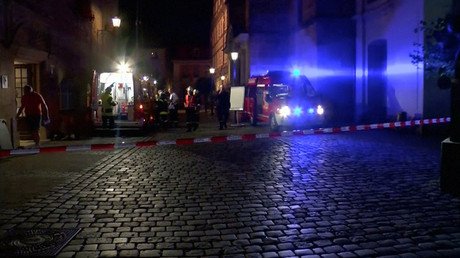‘Terrorist attacks are the price we pay for living in a liberal democracy’
The idea of freedom of speech and freedom to access the internet allows groups like ISIS to radicalize marginalized people with material accessible online, says Dr. Simon Mabon, lecturer in international relations at Lancaster University in the UK.
A Syrian asylum seeker who set off a suicide bomb in the Bavarian city of Ansbach had pledged allegiance to Islamic State (IS, formerly ISIS/ISIL). According to Bavaria's interior minister, pro-Islamist videos and other material was found on the man's phone and computer. Twelve people were injured in the blast that killed the attacker.
RT: Four attacks have hit Germany in a week, two of them - by ISIS sympathizers. What do you make of that? Is it just a coincidence?
Dr. Simon Mabon: I think this is demonstrating that ISIS strategy is working. It is very clearly putting out a narrative that is seeking to radicalize people all across Europe. The material is readily accessible online. And this material is designed to try and speak to disaffected people wherever they may be. This material is guidance on how it conduct attacks, the type of targets you should hit, even guidance on how to build bombs. So, we’ve seen that this guidance, this media strategy is really working. And it can speak to anyone that is marginalized.
RT: We've heard that lone-wolf attacks are harder to prevent? Do the intelligence services have any way to detect them?
SM: This is one of the problems of having a liberal democracy with the idea of freedom and freedom of speech and freedom to access the internet and having all of the access to a whole of hosted different websites which host illegal material. And having access to all these things means that individuals who are disaffected or marginalized can go online and can look at this stuff. I think it is really difficult for the security services because you cannot arrest anyone for something they haven’t done yet…
The guy in Nice, the police were aware of him because of low level crime but that doesn’t mean that the intelligence services should have been aware of his intention, or the capacity for him to be radicalized. So, it raises questions about to what extent the intelligence services should be able to actually reach out and stop these attacks. Unfortunately, this is a price that we pay for living in a liberal democracy.
The statements, views and opinions expressed in this column are solely those of the author and do not necessarily represent those of RT.













